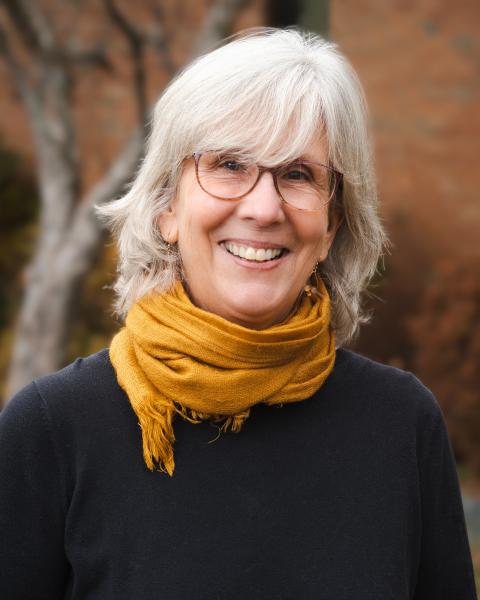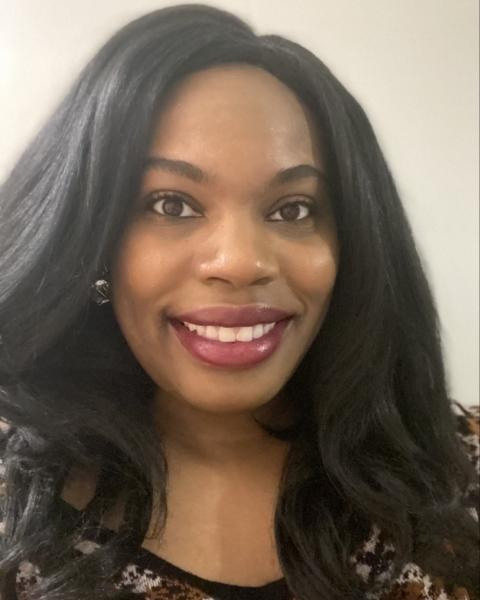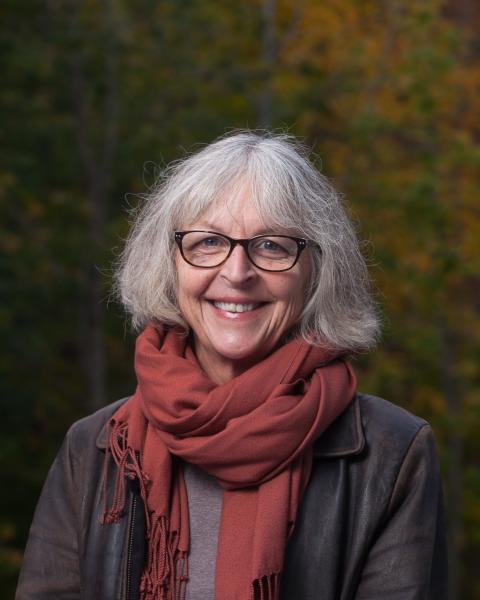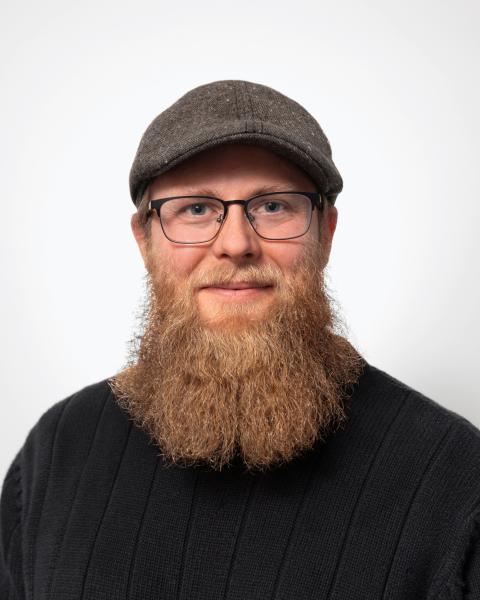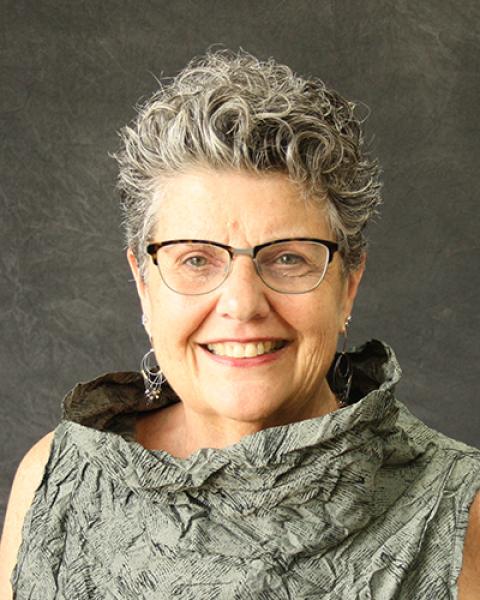As the saying goes, if you do what you love, you will never work a day in your life. If you are curious about what that looks like, in practice, allow us to introduce you to some of the IOD’s faculty, staff, and partners. This is just a small sample of the brilliant, passionate, and dedicated people who are doing the hands-on work to educate the next generation of leaders, train professionals who engage directly with individuals with disabilities and their families, and to conduct research and report findings that help influence policy at the state, national, and international level.
Betsy Humphreys is the Principal Investigator and Director of the New Hampshire-Maine Leadership Education in Neurodevelopmental Disabilities Program (NH-ME LEND). Since 2010, she has secured nearly 11 million dollars to implement the program in collaboration with the University of Maine UCEDD and the Dartmouth Geisel School of Medicine. She is a Research Assistant Professor, served as the UCEDD Training Director from 2021-2023, and is currently a member of the leadership team at the IOD.
As LEND Director, Betsy works extensively with disability partners across New Hampshire and Maine. She taught the LEND Seminar in the College of Health and Human Services and Early Childhood Special Education courses in the College of Liberal Arts until 2022. Betsy values collaboration, bringing partners with diverse perspectives together, listening with curiosity, and developing shared understandings. Betsy is proud of the work done by both NH-ME LEND and NH Leadership programs, two of the IOD’s oldest and largest training programs. Both programs work to prepare a wide variety of disability leaders with influence at the local, state, and national levels.
Shirley Tomlinson is the Community Engagement & Outreach Specialist for The Office of Health Equity at the New Hampshire Department of Health & Human Services (DHHS). Shirley's work with IOD began two years ago when she joined the DHHS to help advance health equity. She does this by contributing to developing material that helps identify the inequities in our systems as told by community members. More importantly, she looks to address those barriers and bring forth real change.
Shirley delivered the keynote address at the 2023 IOD Celebration. Her speech, inspired by her awe at having been asked to be the keynote speaker, reminds us how important it is to take periodic stock of our progress and accomplishments. In doing so, we are less likely to react to a request like delivering a keynote address with “Why me?” and instead, recognize that the more appropriate question is “Why not me?” Delivering this speech proved to Shirley that she needed to learn more about the disability community she serves. To improve her allyship, Shirley applied and was chosen to be a part of IOD's NH Leadership Series Class of 2024, where she says she is learning more than she could ever imagine.
JoAnne M. Malloy is a Research Associate Professor at UNH, has been with the Institute on Disability since 1991, and was named “2023 Social Worker of the Year” by the New Hampshire chapter of the National Association of Social Workers. She has directed several state- and federally-funded youth transition, employment, and dropout prevention projects that focus on youth with emotional and behavioral disorders. In 1996, she developed a transition and career development planning model for youth with emotional and behavioral disorders, known as RENEW (Resilience, Empowerment, and Natural Supports for Education and Work). RENEW has since been replicated in educational, mental health, and juvenile detention settings in New Hampshire and six other states, producing positive educational, vocational, and behavioral health outcomes. Having worked with state and community partners to build family-driven wraparound care in NH, JoAnne is also director of a major contract from the NH Bureau of Children’s Behavioral Health, Department of Health and Human Services to establish a NH Children’s Behavioral Health Resource Center. The center’s mission is to link children, youth, caregivers, and providers to high-quality behavioral health services and supports.
JoAnne deeply believes that youth and families need support that fosters self-determination and resilience. With that in mind, she has built the values of person-centered, family- and youth-driven practice, and promoting social justice in all she does. JoAnne’s main motivation comes from having experienced challenges in her own family growing up. Those experiences inspired her to use whatever gifts and privileges she has been given to support others. JoAnne works to advance the inclusion of all people, including youth with significant emotional or behavioral challenges.
Nate Thomas’s role at the Institute on Disability is focused on supporting our grant-funded research by producing analyses and systems of analysis for occupational health and economic outcomes of people with disabilities. Nate’s goal is to provide information by design—making the user an integral and important design consideration, i.e., “meeting them where they are.” Nate strives to always provide information so that the user can interact and investigate based on their curiosity. He is driven by a passion for learning, creating useful things and helping his colleagues succeed.
Nate is especially passionate about supporting vulnerable populations, which requires first identifying the risk of negative outcomes. These can be related to economic status, health, social connection, a sense of well-being, occupational satisfaction, among others. Predictions of potential outcomes are multidimensional: demographics, geography, cultural associations, choices, and even luck (random chance) can all play a role. Taking these factors into account, Nate produces statistics designed to inform researchers, policy makers, program directors, and the public-at-large about vulnerable populations, and how that vulnerability manifests.
Joan B. Beasley, PhD, is a Research Professor and Director of the National Research Consortium on Mental Health in Intellectual and Developmental Disabilities. She also serves as Principal Investigator and Co-Investigator on several research grants. Her work spans over four decades, and she was one of the primary authors of the START model in 1988, along with the first START study published in 1992. Over several decades, Joan has mentored service providers along with research fellows and scholars, both within the University System of New Hampshire and beyond. In addition to presentations at forums across the U.S. and abroad, Joan is the author of numerous peer-reviewed publications. She is actively engaged in national and international partnerships to improve the lives of people with intellectual/developmental disabilities and mental health service needs. In 2023, Joan was invited to speak at Parliament in the U.K. where she presented on the START Model and value of evidenced based practices to addressing the mental health needs of people with intellectual and developmental disabilities.
Joan believes that dissemination of information should use accessible and multiple modalities to enable the sharing of resources to build capacity for all. She is passionate in her advocacy of studying with people, not about them. Joan feels doing so adds a depth of knowledge and understanding, allowing for a valuable contribution to occur, which she cites as a source of great joy in her work. Her current research projects employ inclusive engagement methods aimed toward overcoming ableism and disparities. This is consistent with the IOD’s mission to enable community inclusion and overcome barriers to meaningful life experiences.

